Brain Power: Examining the rigor of North Penn’s most challenging courses
MATH COUNTS: Students in Mr. Chris Cummiskey’s AP Statistics course at North Penn High School work during a recent class period. Many NPHS students thrive in advanced level courses, but the time and effort is certainly a challenge.
TOWAMENCIN – The sports. The arts. The clubs. North Penn is a school that celebrates all of these things. From all the pep rallies to school musicals, there is no shortage of attention placed on the extracurriculars here at North Penn. But in the midst of all of our clubs, sports teams, music groups, and societies, the spotlight is often turned away from the students who excel in the classroom. While many of these successful students may be a part of these extracurriculars, not often do we see these students recognized for their academic prowess. So who are these students taking a laundry list of AP classes, and what’s driving these students to do so?
AP classes are fast-paced and rigorous college level courses that are known to help prepare students for higher difficulty courses. These classes are also designed to have the intensity of a college level class. Most students who take AP courses take the exam, and if a score of 3 or higher is achieved, college credit may be earned. Taking an AP course and passing the exam proves academic strength, which is often recognized on college applications. North Penn offers a total of 32 AP courses in a wide range of subjects. From English to Science, the variation of courses offers students of different interests to challenge themselves.
AP teachers here at North Penn High School definitely see the rigor that AP brings. Mr. Mark Keagy revealed his insight as an AP Chemistry teacher for several years.
“Science is much more cumulative, and concepts course-wide all connect. It’s challenging because you have to problem solve, and it’s less memorization [in comparison to other AP courses]. The biggest distinction is the applications in course content is lab experiments,” said Keagy.
North Penn Senior Michael Wang, who will have taken 9 AP courses by the time he graduates, always feels the pressure from his AP courses.
AP is definitely tough. I can spend upwards to four hours doing my homework and studying [for my AP classes]
— Michael Wang, NPHS Senior
“AP is definitely tough. I can spend upwards to four hours doing my homework and studying [for my AP classes],” said Wang.
If these courses are so challenging, why are these students taking them? Could it be these students’ love for learning? Or is it another factor that is driving these students?
Many of the top universities value course rigor; these institutions want to see a student who has challenged him or herself to the fullest, taking advantage of the resources around him or her. As a result, students across the nation have been taking more and more AP courses, as seen by the data trend released by College Board. Often times, as seen with North Penn students, these students feel inclined to take many APs, even in subjects they are not genuinely interested in.
“Sometimes I feel that I take APs just for the sake of taking them…There were definitely days when I regretted taking some of [my APs],” explained Wang.
Former AP English teacher Mrs. Ellen McKee even thinks most students should be taking less APs.
“While there is a student who can handle 6 APs…most of [the students] should be in 1 or 2 APs tops, and give [those APs] the time and depth they deserve,” reflected McKee.
Of course, top colleges do not simply want to see the AP name when they are evaluating a student’s transcript. The expectation for many of these AP students find is to excel in these courses.
But juggling such a difficult course load is demanding, leaving students in a moral dilemma: to cheat or not to cheat. Long-time AP English teacher Mrs. Janet Kratz has seen cheating in her classroom throughout her years of teaching.
“A student has to be of really strong moral fibre not to cheat. It is so easy. It’s so easy to find a Shmoop analysis; it’s so easy to find pieces of papers written on your topic; it’s so easy to take ideas. With literally a click of a mouse, they’re right there,” expressed Kratz.
The rise in technology has also helped to make the cheating process quick and easy.
A student has to be of really strong moral fibre not to cheat. It is so easy. It’s so easy to find a Shmoop analysis; it’s so easy to find pieces of papers written on your topic; it’s so easy to take ideas. With literally a click of a mouse, they’re right there
— Mrs. Janet Kratz
“I think students cut a lot more corners than they used to. A, because they can; it’s more easily done than it used to be; B, many students feel such intense pressure to earn As in a schedule that’s incredibly daunting that sometimes they feel the only way to achieve their end goal is to cheat. And electronic media makes it so, so easy,” added Kratz.
At the end of the day, high school is intended to prepare students for the future, laying a foundation of skills that can be built upon in the workforce or at institutions for higher education. But are AP students truly being prepared for college?
Kratz has been able to see the good in AP courses.
“I think the pressure, as unpleasant as it is at times, is really good preparation for college, because you are going to have to wrap your head around a lot of material..You’re gonna have to write challenging papers. So I think the challenge of AP is good. Students have come back to me and said, ‘Oh my God, I was so stressed, but am I ready now.’ And these are Ivy League students coming back saying, ‘I’m no more stressed in college than I was in high school,’” Kratz explained.
But Kratz is quick to qualify her position. While she recognizes the rigor AP brings, Kratz still has her concerns.
“The thing that concerns me most about AP, especially from a language arts perspective, is that the test is on the spot. I sometimes call it fast food. Here’s an essay, 40 minutes, crank it out. Here’s a passage, analyze, size it up, crank it out. And it really rewards students who can read, write, and respond quickly. But it doesn’t measure revision; it doesn’t measure how well a student wraps his or her mind around a big topic, how a student breaks that topic down.” said Kratz.
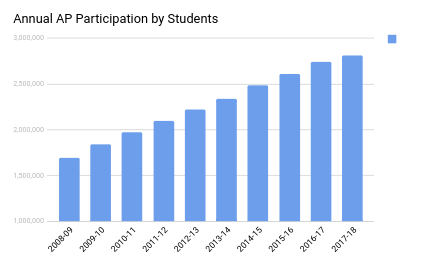
Annual Advanced Placement Participation by students
For most AP students, getting into to a top university is the end goal. This goal brings students to pile on as many APs as possible, working as hard as they can in the classroom in the hopes that their efforts will result in an acceptance letter from an Ivy League school. At the same time, this pressure of going to a top school often steers these AP students towards cheating, a problem magnified with the rapid ascent of technology. And as these students stack the APs, what comes from their education?
“Sometimes I worry that we’re so busy teaching college in high school, we’re not really preparing students for college,” Kratz expressed.


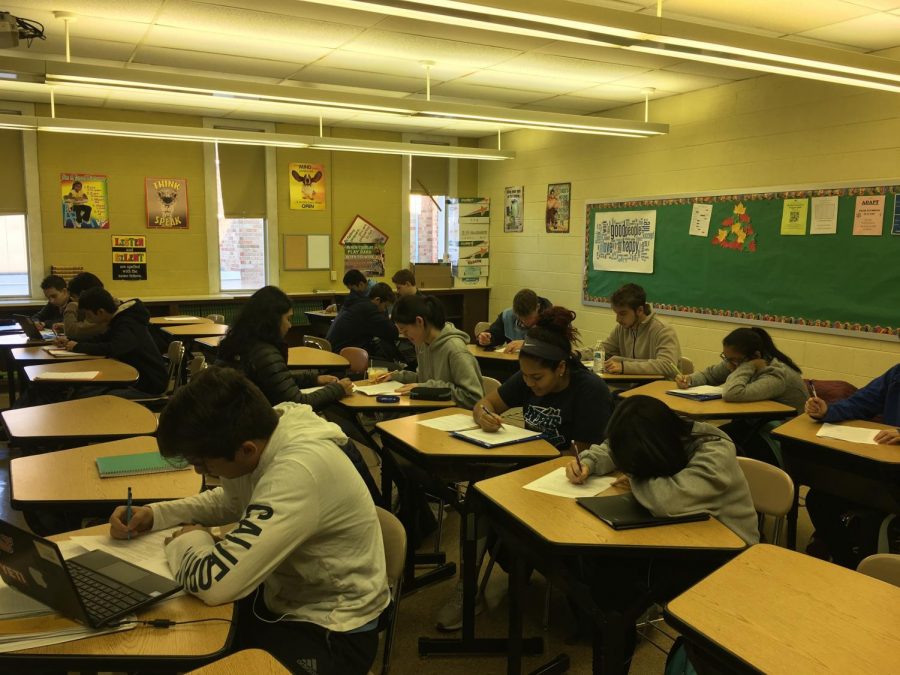


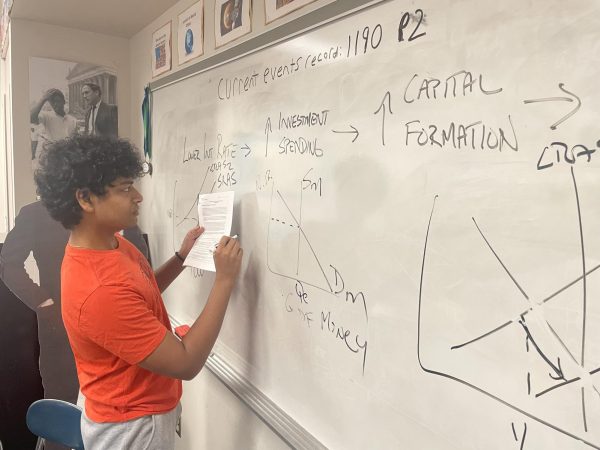
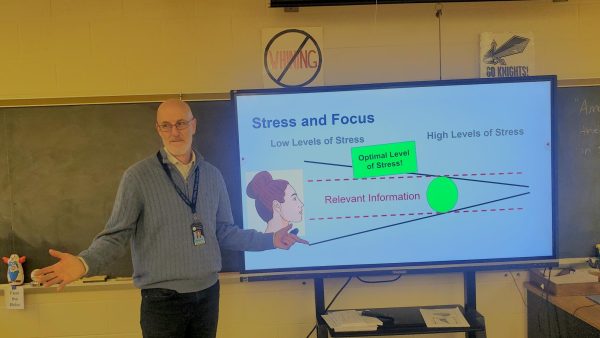
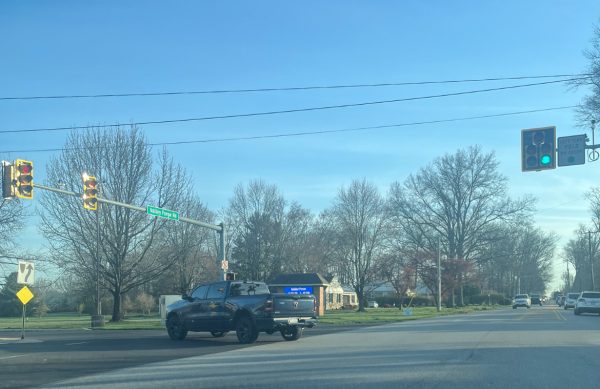

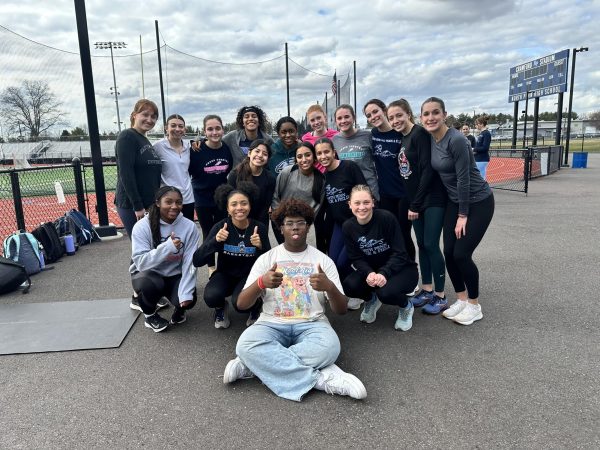
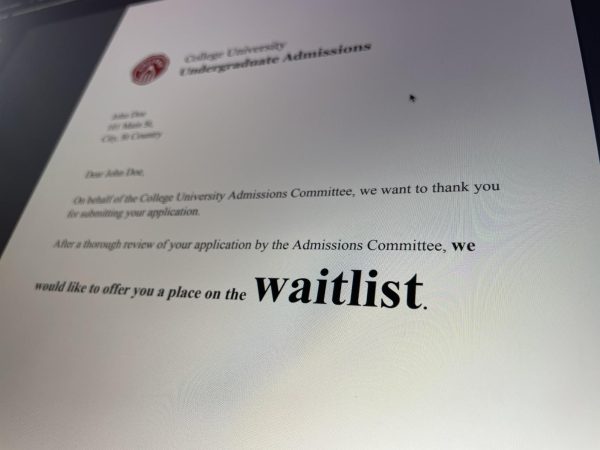

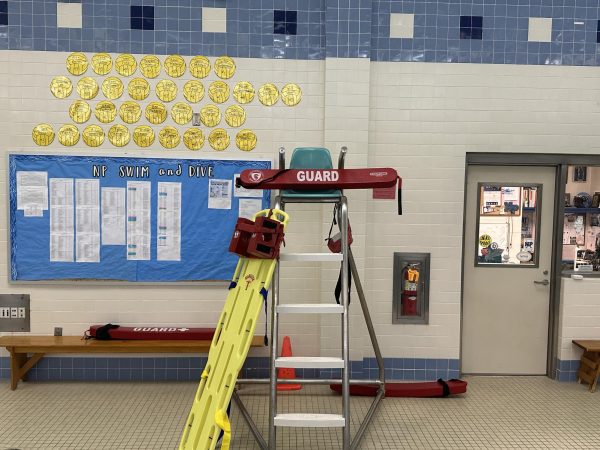
Alumni • Jan 26, 2019 at 10:40 pm
Great article. I would like to see an article of race breakdown of students in the variety of levels of courses. Historically, we see African American’s in low-level classes based on tracking, and whites in the AP programs and honors. How much diversity is there all of NP leveling? I chose the 5.0 program due to the 6.0 and AP (6.5) for being too “white” and less diverse.
Kelsey McKeever • Dec 19, 2018 at 9:37 am
Well written and focused. I like the way your article is set up and organized, it makes it easy and interesting to read.
Ryan Voron • Dec 19, 2018 at 9:36 am
I liked how there were quotes from both a former and a current AP teacher. The student’s quotes told us an inside look on a how it hard it really is to be in AP courses. I would have like to read about what AP courses are available for the students at North Penn.
julia • Dec 19, 2018 at 9:31 am
I think your article had a lot of interesting points that I enjoyed reading about since I’m in AP classes.
Rebecca Brandolph • Dec 19, 2018 at 9:28 am
I really enjoyed this article, but I wish there was more about the balance between these classes and other activities or talk to students who balance it all.